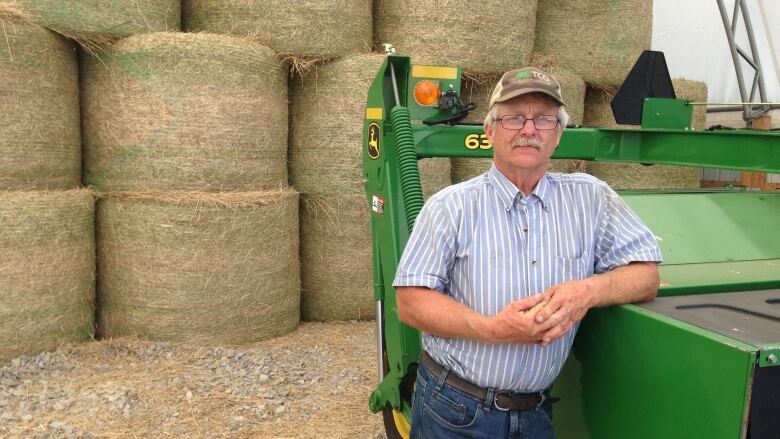Kingston region experiences driest summer since 1880s
Some farmers say they're out thousands of dollars from lost crops

As you approach Kingston on west-bound Highway 401, it quickly becomes clear that the region is suffering.
Much of the landscape includingditches, trees and farm fields is a startling shade of brown.
On Wednesday, the Cataraqui Region Conservation Authority declared the region is experiencing"severe" drought conditions the highest rating it can give.
Wells are running dry, some farmers are considering selling off livestock, and there's no realrelief in sight.
"Everything is really that brown, dry, sort of crunchy, crunchy material throughout the region," said Sean Watt, ofthe Cataraqui Region Conservation Authority.
Watt has been going through 140 years worth of Environment Canada precipitation data for the area, and he says this April to July has been the driest since the 1880s.
"There are probably two big concerns. One is that people on wells, their only supply of water, those are starting to go dryand the other big one is fire."
For South Frontenacfarmer David Clement, he's most concerned about the devastating toll the drought has had on his hay crop.
He told CBC News he's out about $20,000and he's now considering selling some of his dairy cows because he has no hay to feed them, and no hay to sell for extra cash.
"We got our first cut hay offbut that's the end of it. There's no second cut for us. It's gone now, and so the hope of a third cut is gone," said Clement.
'People are in bad times'
Despite the bleak outlook for farmers, some well-drillers in the area told CBC News they're having their best summer in years.
As wells run dry, workers in the region have been drilling triple the number of wells they'd normally do in a day,according to John Knox, co-owner of Jack Knox Well Drilling in Glenburnie, Ont.
Since the average 30-metre well costs$4,500 to drill, people with drywells are also suffering financially.
"People are in bad times right nowbusiness is goodit's good for us, but not people. It's not what you want," said Knox.
Evenif it does start to rain, the conservation authority warns a few days worth won't be anywhere near enough.
"Chances are we need weeks, or a couple of months ofregular rainfall to help out with some of those dry wells," said Watt.












_(720p).jpg)


 OFFICIAL HD MUSIC VIDEO.jpg)
.jpg)



























































































